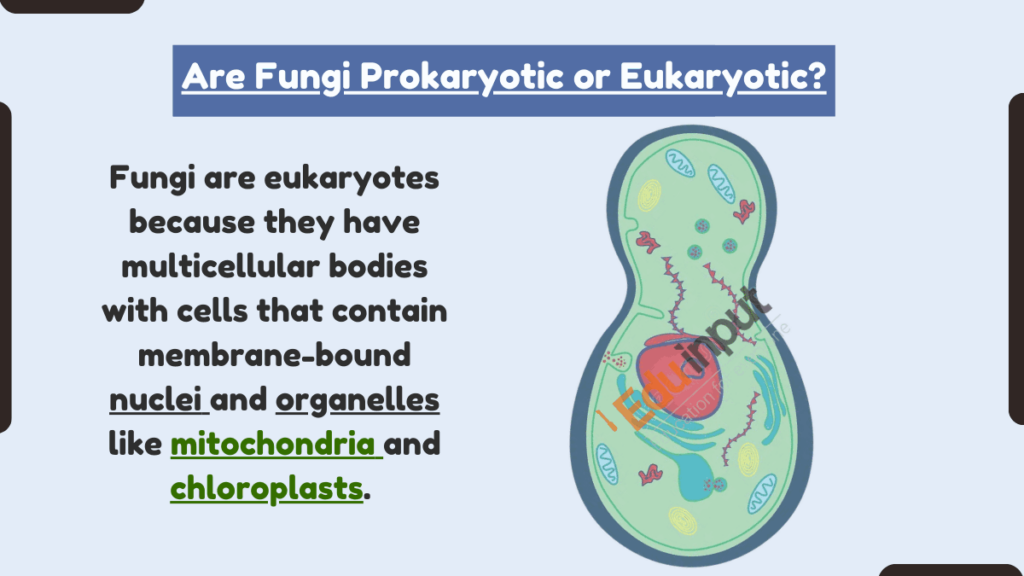Are Fungi Prokaryotic or Eukaryotic?
Fungi are eukaryotes because they have multicellular bodies with cells that contain membrane-bound nuclei and organelles like mitochondria and chloroplasts. Their complex cellular organization with distinct nuclei and organelles contrasts prokaryotes that lack these eukaryotic traits.

Reason Why Fungi Are Considered Eukaryotic?
Here are some reasons why fungi are characterized as eukaryotes:
1. Presence Of Distinct Nuclei
Fungi have membrane-bound nuclei. Their genetic material is contained within an envelope called the nuclear membrane, which is a distinguishing feature of eukaryotic cells.
2. Presence of organelles
Fungi have organelles. Key eukaryotic organelles like mitochondria, Golgi apparatus, endoplasmic reticulum, and vacuoles are present in fungal cells. Prokaryotes lack these more complex cellular structures.
3. Sexual mode of reproduction
Reproduction in fungi often involves microscopic spores that can travel long distances through the air. Fungi undergo mitosis and meiosis. Eukaryotes reproduce sexually via meiosis or asexually by mitosis. Fungi reproduce both ways, while prokaryotes typically only divide via binary fission.
4. Presence of Linear Chromosomes
Fungi have multiple linear chromosomes. Prokaryotic chromosomes are usually singular and circular. Fungi, like other eukaryotes, have multiple linear chromosomes present in the nucleus.
5. Multicellularity
Fungi are multicellular. Most fungi grow as multicellular filaments or bodies made up of many cells. Only eukaryotes develop true multicellular complexity.

 written by
written by 

Leave a Reply